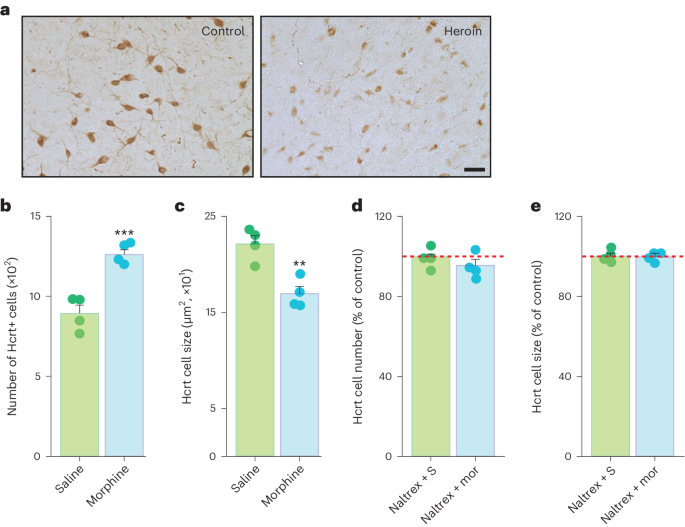Time: 2024-07-11

When given with morphine , the insomnia drug prevented addiction in mice while maintaining effective pain relief . Suvorexant , an insomnia drug , has shown promise in preventing the addictive effects of morphine in mice . This drug blocks hypocretin receptors , which are linked to mood and addiction . The study highlights that suvorexant can prevent changes in hypocretin neurons , reduce opioid - induced brain inflammation , and decrease addictive behaviors and withdrawal symptoms . More research is needed to determine the applicability of these findings to humans.
Hypocretin , also known as orexin , plays a vital role in regulating mood . Research has shown that hypocretin release in humans is highest during pleasurable activities and lowest during times of pain or sadness . Moreover , the loss of hypocretin neurons is associated with narcolepsy . People with narcolepsy and narcoleptic mice have a reduced susceptibility to opiate addiction . Morphine has been found to increase the number of hypocretin - producing neurons , leading to changes in brain regions associated with pleasure . Administering opioids with suvorexant in mice prevents these changes , reduces brain inflammation , and decreases addictive behaviors.
The rise in opioid overdose deaths in the US has become a major public health concern . The study led by UCLA Health highlights the potential of using suvorexant to prevent opioid addiction , providing safer and more effective pain relief options without the risk of addiction and overdose death . Further studies are needed to confirm the effectiveness of suvorexant in humans using opioids for pain relief . The findings offer hope for a new approach to addressing the opioid crisis.
Research has identified the involvement of various neurotransmitter systems in addiction , including orexin / hypocretin , opioid receptors , and dopamine pathways . Understanding the intricate interactions between these systems is crucial for developing effective strategies to combat addiction . Studies have shown that orexin / hypocretin plays a significant role in reward processing and addiction . Targeting these pathways could lead to innovative treatments for substance use disorders . Additionally , the modulation of opioid receptors and dopamine activity has been linked to addictive behaviors , highlighting the complexity of addiction mechanisms.
By exploring the interconnected nature of neurotransmitter systems and addiction , researchers can gain valuable insights into potential therapeutic interventions . The study 's findings on suvorexant 's ability to prevent opioid addiction offer a promising avenue for further research and the development of novel treatment approaches . As the opioid crisis continues to impact communities worldwide , innovative solutions are needed to address the challenges of addiction and improve outcomes for individuals struggling with Opioid use disorder.